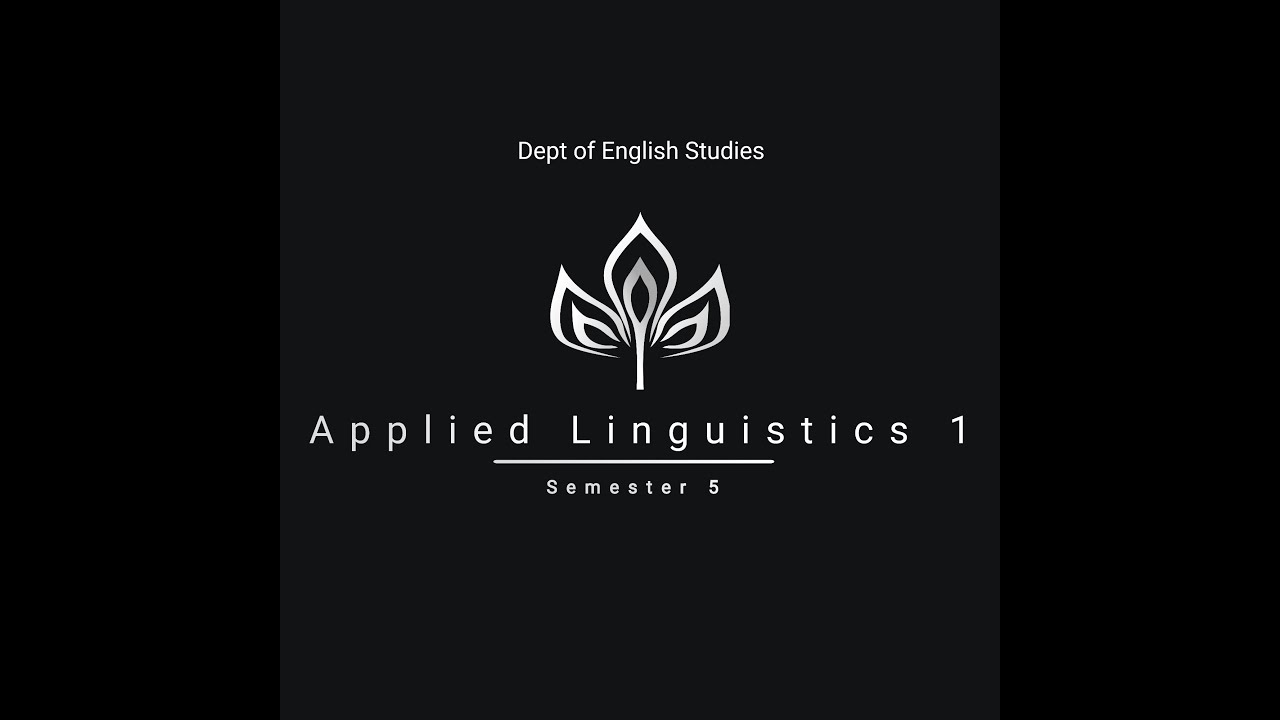NATIVIST THEORY
Summary
TLDRIn this educational video, Megan Teacher explores the nativist theory of language acquisition, which posits that humans have an innate ability to learn language. She discusses Noam Chomsky's influential theory of a 'universal grammar' - a genetic predisposition that facilitates language learning. The video highlights how children acquire language effortlessly, following a similar developmental sequence worldwide, and how this supports the idea of an inborn language capacity. It also touches on the implications for language teaching, suggesting that early childhood is an optimal period for language learning due to our natural predisposition.
Takeaways
- 🌟 Humans are storytelling beings with a unique capacity for language, which is used in creative ways to communicate.
- 🧠 The nativist theory suggests that humans are born with an innate ability to learn language, akin to other genetic traits.
- 🎓 Noam Chomsky's theory proposes the existence of a 'language acquisition device' in the brain, similar to how the hypothalamus regulates body temperature.
- 🌐 Chomsky argues for a 'universal grammar', a basic structural framework that allows us to grasp language easily, regardless of the specific language.
- 🔄 All languages share basic traits such as the categorization of words into nouns, verbs, and adjectives, and the recursive property that allows for sentence expansion.
- 👶 Children acquire language effortlessly and universally follow a similar developmental pattern, suggesting an innate understanding of language structure.
- 🌱 The 'poverty of stimulus' argument posits that children learn complex grammatical rules without explicit instruction, indicating an innate knowledge base.
- 📚 The nativist perspective has influenced language teaching, promoting natural, immersive methods over rote memorization of grammar and vocabulary.
- 👨🏫 The theory suggests an optimal age for language acquisition, with younger children being more adept at natural language learning.
- 🌟 Chomsky's theory, while not universally accepted, has significantly shaped our understanding of how language is acquired and taught.
Q & A
What is the nativist theory of language acquisition?
-The nativist theory suggests that humans are born with an innate ability to acquire language, proposing the existence of a theoretical language acquisition device in our brains that facilitates language learning.
Who is Noam Chomsky and what is his contribution to the understanding of language acquisition?
-Noam Chomsky is a linguist who, in 1957, published 'Syntactic Structures', proposing the idea that all humans may be born with an innate understanding of how language works, referred to as a universal grammar.
What is universal grammar according to Chomsky?
-Universal grammar is a basic understanding of how communication is structured that Chomsky suggests is genetically encoded in all humans, allowing them to acquire any language they are exposed to.
What evidence supports the existence of a universal grammar?
-Evidence supporting universal grammar includes the shared basic traits among all languages, such as the categorization of words into nouns, verbs, and adjectives, and the recursive property of language that allows for the expansion of sentences.
How do children's language learning abilities support the nativist theory?
-Children's ability to learn language almost effortlessly, their early awareness of language categories, and the consistent developmental sequence in which they acquire language support the idea that there is an innate component to language learning.
What is the 'poverty of stimulus' argument in language acquisition?
-The 'poverty of stimulus' argument posits that children learn complex grammatical rules and structures of language without receiving explicit instruction, suggesting an innate ability to understand language.
What are the three basic stages of language learning according to the script?
-The three basic stages of language learning are learning sounds, learning words, and learning sentences, which involve perceiving and producing speech sounds, acquiring vocabulary, and building complex sentence structures.
How does the nativist theory influence language teaching in the classroom?
-The nativist theory has led to the belief in an optimal age for language acquisition and the adoption of natural, immersive teaching methods that mimic the way we acquire our first languages, rather than focusing solely on memorization.
What is the significance of the recursive property of language in the nativist theory?
-The recursive property, which allows for the nesting of sentence structures, is significant in the nativist theory as it is a shared characteristic across languages and supports the idea that this ability is innate.
How does the script suggest language learning might differ if the nativist theory is not accurate?
-If the nativist theory is not accurate, language learning might be seen as a more environmental and learned process, potentially requiring more explicit instruction and less emphasis on the idea of an optimal age for language acquisition.
Outlines

Cette section est réservée aux utilisateurs payants. Améliorez votre compte pour accéder à cette section.
Améliorer maintenantMindmap

Cette section est réservée aux utilisateurs payants. Améliorez votre compte pour accéder à cette section.
Améliorer maintenantKeywords

Cette section est réservée aux utilisateurs payants. Améliorez votre compte pour accéder à cette section.
Améliorer maintenantHighlights

Cette section est réservée aux utilisateurs payants. Améliorez votre compte pour accéder à cette section.
Améliorer maintenantTranscripts

Cette section est réservée aux utilisateurs payants. Améliorez votre compte pour accéder à cette section.
Améliorer maintenantVoir Plus de Vidéos Connexes

Theories of language development: Nativist, learning, interactionist | MCAT | Khan Academy

Bahasa Manusia dan Pemerolehannya (Teori Behaviorisme VS Nativisme)

Language Acquisition and Universal Grammar

Noam Chomsky: The Origins of Language: Were We Programmed to Speak?

Language and Literacy Development |Child and Adolescent Learners and Learning Principles

Universal Grammar Theory
5.0 / 5 (0 votes)
